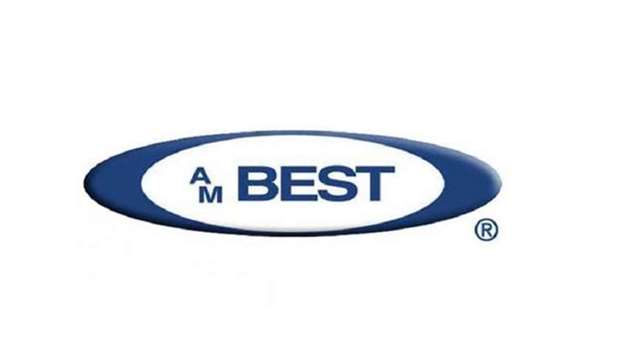The domestic insurers in the Gulf Co-operation Council (GCC) may see "considerable" slowdown in their investment portfolios, hence no longer be able to achieve top-line premium growth at levels experienced over the past 10 years, according to AM Best, a global insurance rating agency.
The projection comes in the wake of lower oil prices and the prospect of a Covid-19-driven global recession as investment is expected to slow considerably, AM Best said in its latest report.
Just as the effect of the sudden drop in oil prices and the Covid-19 outbreak on oil-rich emerging economies is likely to vary, the impact on the domestic insurance companies operating in these markets is also likely to vary depending on their asset quality and the lines of business written.
AM Best believes those insurers with more robust risk management frameworks are likely to be more resilient.
In general, risk carriers in oil-rich emerging economies have seen "notable" growth in gross premium revenues over the last few decades, stemming from an increase in insurable risks.
The GCC insurance markets would feel the effect of lower oil prices and pandemic-driven reduction in economic activity on both underwriting and assets, it said, adding lower oil prices would impact the fiscal spending plans of governments in the region, which is likely to translate into reductions in infrastructure spending.
"A substantial proportion of underwriting in the GCC is linked to government-backed infrastructure projects that governments incept, notably property and engineering contracts," the rating agency said.
Domestic insurers in the GCC often only have profiles and balance sheets that support them taking a small net share on large property and engineering risks.
Nevertheless, they have benefited from strong inward commissions from regional and global reinsurers that bear the majority of these risks, it said, noting that profitability in the sector over the last five years has been buoyed by these commissions.
"Consequently, while a slowdown in new energy, property and construction risks may not impact the net written premium base of most domestic insurers, technical profitability is likely to deteriorate," according to AM Best.
The rating agency reminded that when there was last a significant fall in the price of oil, several GCC countries froze government spending, which impacted the top lines of some local insurers, particularly those with large engineering and construction books.
Although the GCC insurers are less exposed to currency risk than those in other oil-producing countries, as the Gulf currencies tend to be pegged to the dollar, it expects the investment portfolios of GCC insurers to be affected by lower oil prices as well as Covid-19-driven financial market volatility, as they are weighted towards equities and real estate.
Among the GCC insurers it rates exposure to real estate and equities is 30% and 17% of total investments respectively, the rating agency said, adding around 30% of the investment allocations of AM Best-rated GCC insurers are to cash.
However, its analysis indicates that in the search for yield some insurers have used lower-rated banks and cautioned that a further reduction in the credit quality of these banks, linked to increased financial and economic risk from oil price volatility and the pandemic, could lead to a decline in the security of their deposits.
Just as the effect of the sudden drop in oil prices and the Covid-19 outbreak on oil-rich emerging economies is likely to vary, the impact on the domestic insurance companies operating in these markets is also likely to vary depending on their asset quality and the lines of business written.
AM Best believes those insurers with more robust risk management frameworks are likely to be more resilient.
In general, risk carriers in oil-rich emerging economies have seen "notable" growth in gross premium revenues over the last few decades, stemming from an increase in insurable risks.
The GCC insurance markets would feel the effect of lower oil prices and pandemic-driven reduction in economic activity on both underwriting and assets, it said, adding lower oil prices would impact the fiscal spending plans of governments in the region, which is likely to translate into reductions in infrastructure spending.
"A substantial proportion of underwriting in the GCC is linked to government-backed infrastructure projects that governments incept, notably property and engineering contracts," the rating agency said.
Domestic insurers in the GCC often only have profiles and balance sheets that support them taking a small net share on large property and engineering risks.
Nevertheless, they have benefited from strong inward commissions from regional and global reinsurers that bear the majority of these risks, it said, noting that profitability in the sector over the last five years has been buoyed by these commissions.
"Consequently, while a slowdown in new energy, property and construction risks may not impact the net written premium base of most domestic insurers, technical profitability is likely to deteriorate," according to AM Best.
The rating agency reminded that when there was last a significant fall in the price of oil, several GCC countries froze government spending, which impacted the top lines of some local insurers, particularly those with large engineering and construction books.
Although the GCC insurers are less exposed to currency risk than those in other oil-producing countries, as the Gulf currencies tend to be pegged to the dollar, it expects the investment portfolios of GCC insurers to be affected by lower oil prices as well as Covid-19-driven financial market volatility, as they are weighted towards equities and real estate.
Among the GCC insurers it rates exposure to real estate and equities is 30% and 17% of total investments respectively, the rating agency said, adding around 30% of the investment allocations of AM Best-rated GCC insurers are to cash.
However, its analysis indicates that in the search for yield some insurers have used lower-rated banks and cautioned that a further reduction in the credit quality of these banks, linked to increased financial and economic risk from oil price volatility and the pandemic, could lead to a decline in the security of their deposits.


